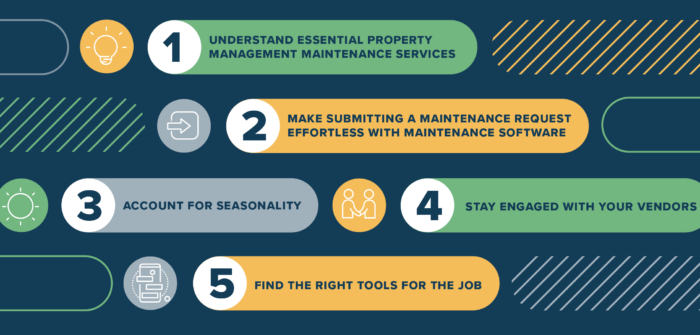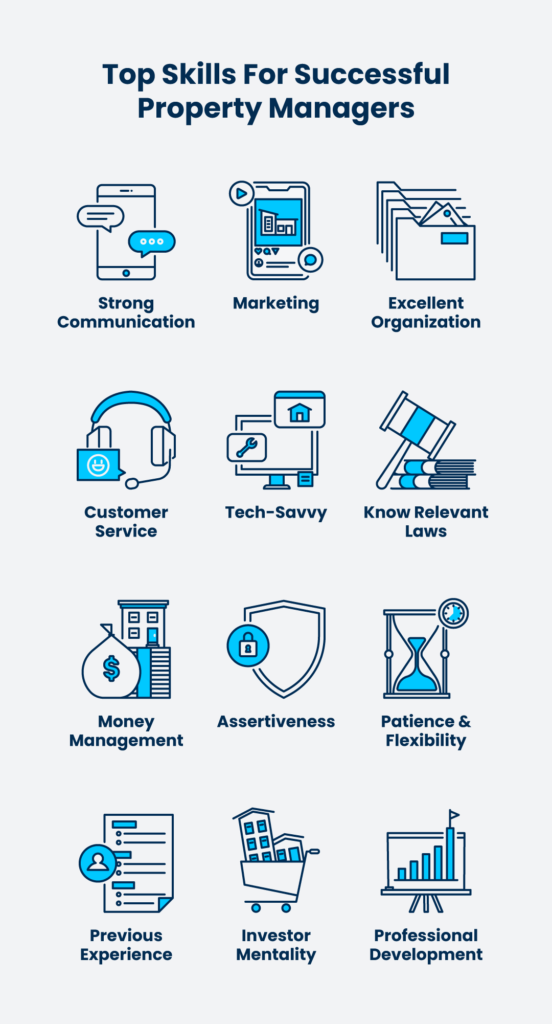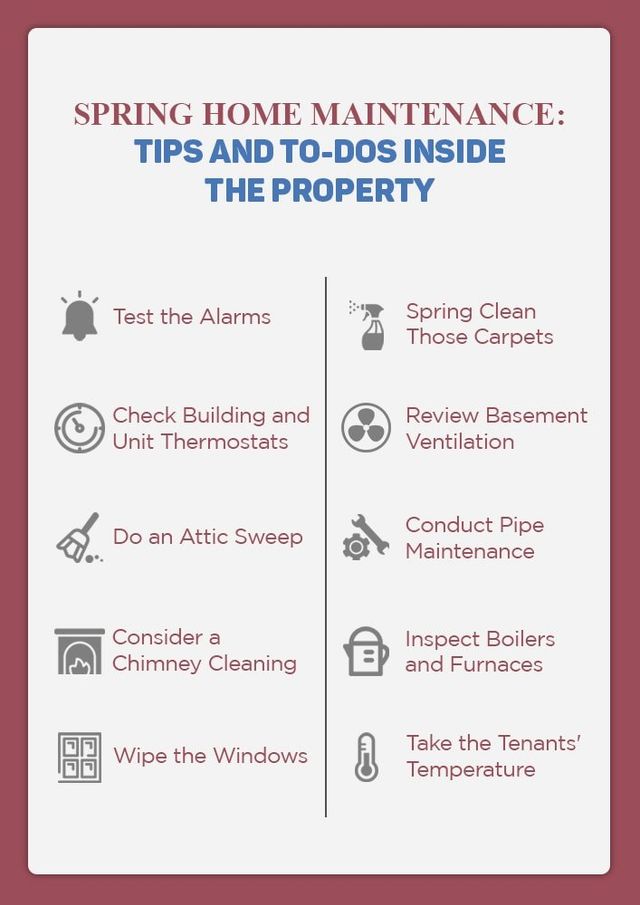Unlock the secrets to successful property management with these essential tips that will take your rental business to new heights.

Image courtesy of George Becker via Pexels
Table of Contents
- Introduction to Property Management
- Organizational Skills
- Financial Management
- Maintenance Matters
- Effective Marketing Techniques
- Understanding Legalities
- Dealing with Difficult Situations
- Technological Tools for Efficiency
- Continued Education and Growth
- Conclusion: Being a Top-Notch Property Manager
- FAQs
Introduction to Property Management
Property management is a vital aspect of real estate that involves overseeing residential or commercial properties on behalf of property owners. It encompasses a wide range of responsibilities aimed at maintaining and maximizing the value of the property. Effective property management strategies contribute significantly to the success of property owners and the satisfaction of tenants.
What does a Property Manager Do?
A property manager is responsible for the day-to-day operations of a property, including tenant relations, rent collection, property maintenance, and budgeting. They act as a liaison between the property owner and the tenants, ensuring that all parties’ needs are met efficiently and effectively.
Why Good Management Matters
Good property management is crucial for creating a positive living or working environment for tenants. It helps in fostering strong relationships between landlords and tenants, leading to better tenant retention and increased property value. Effective property management strategies ultimately result in happier tenants and better profits for property owners.
Building Relationships with Tenants
Communication is a crucial aspect of being a successful property manager. One key element of this is building strong relationships with your tenants. By establishing good communication with the people living in your properties, you can create a more pleasant and efficient management process.
Keeping Landlords in the Loop
Not only is communication important with tenants, but it is also essential to keep your landlords informed. Regular updates on the status of the property, any repairs or issues that need attention, and financial matters can help build trust between you and the property owners. Keeping landlords in the loop shows your dedication to effective property management.
Organizational Skills
As a property manager, you may find yourself handling more than one property at a time. To keep everything in order, it’s crucial to stay organized. One tip is to create a checklist of tasks for each property, noting specific deadlines for rent collection, maintenance checks, and any other important responsibilities. This checklist will help you stay on top of all your duties and ensure nothing falls through the cracks.
Time Management
Time management is key for property managers who have a busy schedule. One effective strategy is to prioritize tasks based on urgency and importance. By creating a daily schedule and setting aside specific time blocks for different activities, you can manage your time more efficiently. Additionally, utilizing tools such as calendars or task management apps can help you stay organized and on track.
Financial Management
Effective property management involves handling financial matters such as rent collection and budgeting. Managing the financial aspects of properties is crucial to ensure smooth operations and profitability.

Image courtesy of www.buildium.com via Google Images
Rent Collection Strategies
One of the key responsibilities of a property manager is to ensure that rent is paid on time. To achieve this, it’s important to establish clear and consistent rent collection processes. Setting up automatic payment options can help streamline the process and reduce the chances of late payments. Communicating payment deadlines and consequences for late payments upfront can also encourage tenants to pay on time.
Budget Wisely
Creating and sticking to a budget is essential for effective property management. A budget helps property managers allocate funds for maintenance and improvements, ensuring that the property remains in good condition and retains its value. It’s important to account for both regular maintenance expenses and unexpected repairs in the budget to avoid financial surprises. Regularly reviewing and adjusting the budget as needed is key to responsible financial management.
Maintenance Matters
As a property manager, one of the most crucial aspects of your role is ensuring that the properties under your care are well-maintained. Keeping up with maintenance not only improves tenant satisfaction but also helps retain good tenants and protect the value of the property. Here are some essential tips on how to handle maintenance effectively.
Routine Check-Ups
Regular maintenance check-ups are key to preventing major issues down the road. By conducting routine inspections of the property, you can identify small problems before they turn into costly repairs. Make sure to inspect all aspects of the property, from plumbing and electrical systems to the roof and landscaping. Keeping a maintenance schedule can help you stay organized and ensure that no area is overlooked.
Dealing with Emergencies
Emergencies can happen at any time, so it’s important to have a plan in place for handling them efficiently. Make sure that tenants know how to reach you in case of an emergency and establish procedures for dealing with urgent maintenance issues. Whether it’s a burst pipe, a broken window, or a power outage, having a list of reliable contractors and vendors on hand can help you address emergencies quickly and effectively.
Effective Marketing Techniques
When it comes to managing properties, attracting quality tenants is crucial. This is where effective marketing techniques play a significant role. By utilizing smart strategies, property managers can reach a wider audience and showcase their properties in the best light.

Image courtesy of www.turbotenant.com via Google Images
Online Advertising
In today’s digital age, online advertising is a powerful tool for property managers. Listing properties on real estate websites, social media platforms, and dedicated rental portals can help reach potential tenants who are actively searching for a place to rent. Eye-catching photos, detailed descriptions, and accurate information can make a listing stand out in a competitive market.
Word-of-Mouth
Another effective marketing technique for property managers is leveraging word-of-mouth referrals. Satisfied tenants and landlords can be your best brand advocates. Encouraging them to spread the word about their positive experience renting with you or working with you as a property manager can attract new tenants and property owners to your business. Building good relationships with current clients can lead to valuable referrals and long-term success.
Understanding Legalities
When it comes to managing properties, understanding legalities is a crucial aspect that every property manager should prioritize. By staying informed about property laws and regulations, you can ensure that you are operating within the boundaries set by the authorities and protect the rights of both landlords and tenants.
| Tips | Description |
|---|---|
| 1. Communication | Keep open lines of communication with tenants, landlords, and maintenance staff to address any issues promptly. |
| 2. Property Maintenance | Regularly inspect the property and address any maintenance issues to ensure the property remains in good condition. |
| 3. Legal Compliance | Stay updated on landlord-tenant laws and regulations to ensure compliance and avoid legal issues. |
| 4. Tenant Screening | Thoroughly screen potential tenants to ensure they are reliable and responsible renters. |
| 5. Financial Management | Stay on top of rent collection, expenses, and budgeting to ensure the financial health of the property. |
| 6. Emergency Preparedness | Have a plan in place for handling emergencies and communicate this plan to tenants and staff. |
| 7. Professional Development | Continuously educate yourself on property management best practices and seek professional certifications. |
Local Laws and Ordinances
As a property manager, it’s essential to familiarize yourself with the local laws and ordinances that govern property management in your area. These regulations can vary from city to city or state to state, so it’s important to stay up to date with any changes or updates that may affect how you manage your properties.
By understanding and adhering to these laws, you can avoid potential legal issues that could arise from non-compliance. This includes knowing the regulations regarding rent increases, security deposit handling, eviction processes, and health and safety standards.
Lease Agreements
One of the most important legal documents in property management is the lease agreement. A well-drafted lease agreement helps to protect both the landlord and tenant by clearly outlining their rights and responsibilities.
When creating a lease agreement, it’s crucial to include all necessary details such as the lease term, rent amount, payment due dates, maintenance responsibilities, and any additional rules or policies. It’s also important to ensure that the agreement complies with local laws and regulations to avoid any legal disputes in the future.
Remember that a detailed and legally sound lease agreement can serve as a valuable tool in case of any disagreements or disputes between the landlord and tenant, so it’s essential to put in the effort to create a comprehensive and enforceable contract.
Dealing with Difficult Situations
As a property manager, you may encounter disagreements or issues between tenants or between tenants and landlords. It’s essential to handle these conflicts in a professional and diplomatic manner to maintain a positive relationship with all parties involved. One strategy for conflict resolution is to act as a mediator, listening to both sides of the story and encouraging open communication. By understanding each party’s perspective, you can work towards finding a mutually beneficial solution.
Image courtesy of fitsmallbusiness.com via Google Images
Eviction Process
While it’s usually a last resort, there are times when the eviction of a tenant becomes necessary. Understanding the legal requirements and procedures involved in the eviction process is crucial to ensure it is done correctly and ethically. Before moving forward with an eviction, make sure to consult with legal professionals to understand the laws in your area. It’s essential to follow the proper steps and documentation to protect the rights of both the tenant and the landlord.
Technological Tools for Efficiency
property management software is a powerful tool that can help property managers stay organized and efficient in their daily tasks. These software programs can assist in keeping track of rent payments, maintenance requests, lease agreements, and even communication with tenants. By using property management software, managers can streamline their processes and ensure nothing falls through the cracks.
Mobile Apps for On-the-Go Management
For property managers on the move, mobile apps offer a convenient way to stay connected and manage their properties effectively. These apps allow managers to access important information, communicate with tenants, schedule maintenance tasks, and even handle emergencies right from their smartphones. With the help of mobile apps, property managers can oversee their properties from anywhere, anytime.
Continued Education and Growth
As a property manager, it’s crucial to always be learning and improving your skills. One great way to do this is by attending training sessions and workshops specifically designed for property managers. These educational opportunities can provide you with new insights, tools, and strategies to enhance your property management abilities.

Image courtesy of www.564rent.com via Google Images
Networking with Professionals
Networking is another essential aspect of continued education and growth in property management. By connecting with other property managers and real estate professionals, you can expand your knowledge base, learn from their experiences, and stay up to date on industry trends. Building a strong professional network can also open up opportunities for collaboration and mentorship.
Conclusion: Being a Top-Notch Property Manager
As a property manager, there are several key tips and best practices to keep in mind to excel in your role. By implementing effective property management strategies, utilizing property manager advice, and following property management best practices, you can ensure success in your endeavors.
Summary of Key Points
Throughout this guide, we have highlighted the importance of effective communication, organizational skills, financial management, maintenance routines, marketing techniques, understanding legalities, conflict resolution, leveraging technological tools, and continuing education and growth in the field of property management. By mastering these aspects, you can become a top-notch property manager.
Final Thoughts
Being a property manager requires a diverse skill set and a dedication to providing excellent service to tenants and landlords. By staying informed, proactive, and attentive to the needs of all parties involved, you can navigate the challenges of property management with ease and professionalism.
FAQs
How often should routine maintenance be scheduled?
Routine maintenance should be scheduled regularly, preferably every three to six months, depending on the property’s age and condition. Regular inspections help identify and address potential issues before they escalate into costly repairs. Maintaining the property’s upkeep ensures tenant satisfaction and prolongs the lifespan of the property.
What should I do if a tenant is consistently late paying rent?
If a tenant is consistently late paying rent, it is important to address the issue promptly. Start by communicating with the tenant to understand the reason behind the delays. Establish clear policies regarding late fees and consequences for repeated late payments in the lease agreement. Consider offering payment plans or reminders to help the tenant stay on track with rent payments.
Are property management software programs worth the investment?
Property management software programs can be a valuable investment for property managers. These tools streamline administrative tasks, such as rent collection, maintenance requests, and financial reporting. They help improve efficiency, communication, and organization, ultimately saving time and reducing the likelihood of errors. Investing in a reputable property management software program can lead to increased productivity and better management of properties.
Idaho Poperty Management
